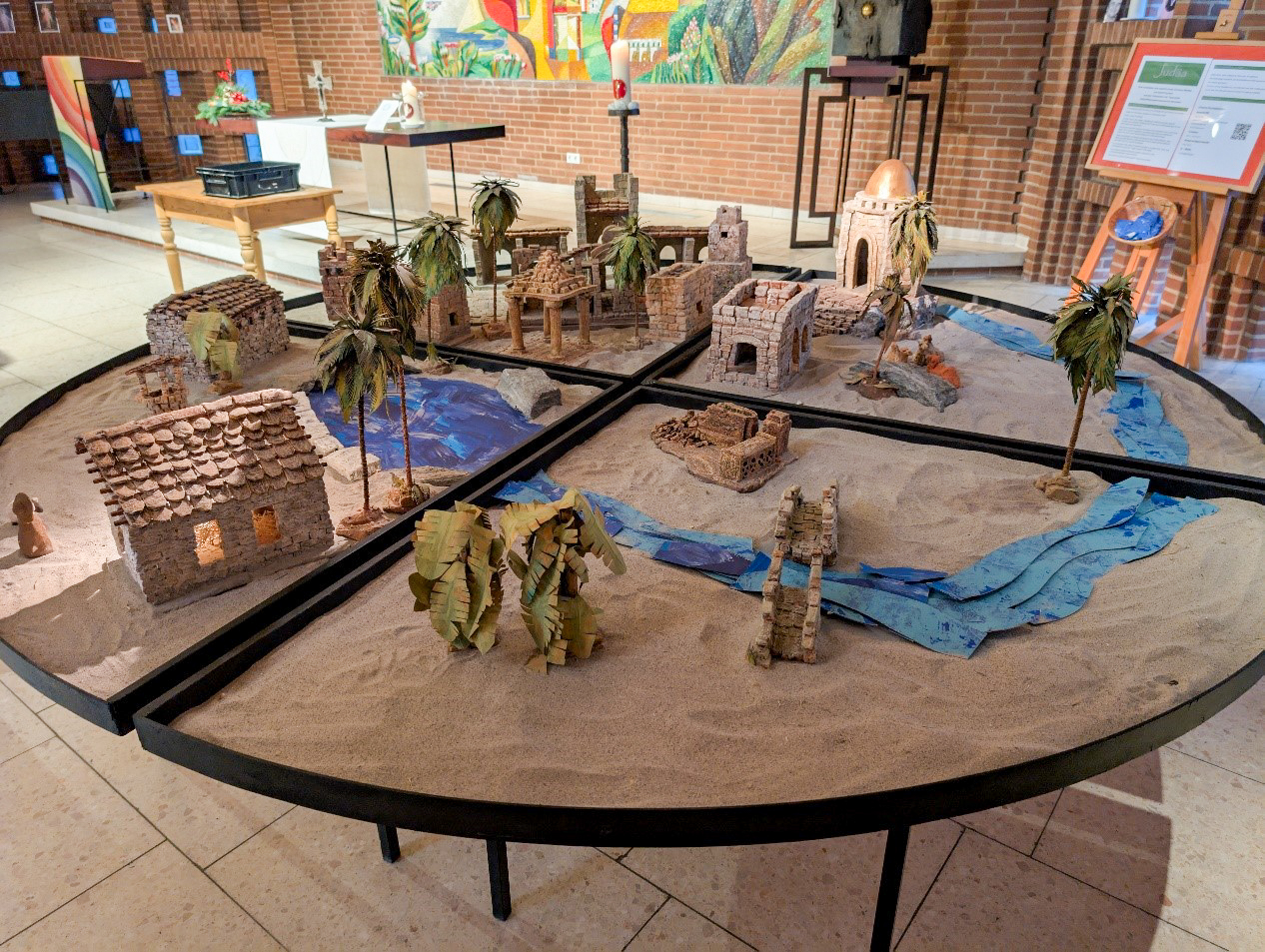Creative collaboration: "Judean City" exhibition in the MHH chapel.

A unique exhibition in the chapel of Hannover Medical School (MHH), which can be seen until 8 January 2025, sends a strong signal of community and hope. It was created through a new collaboration between the day centre of the Verein zur Förderung seelisch Behinderter e.V. and the MHH's occupational therapy department at the beginning of 2024. The aim of the collaboration is to provide mentally ill patients with prospects for a structured daily routine after their hospitalisation.
Every year since 2007, a model of the Judean city has been set up in the MHH chapel, which was created in the occupational therapy workshop day centre. This year, the association and the MHH expanded this exhibition with a special therapeutic programme. The MHH's occupational therapy workshop created artistic fish for the accompanying river. These fish were inscribed with personal wishes by the patients and collected at Christmas time to be integrated into the Christmas services. This is intended to send a strong signal of community and hope.
"This co-operation illustrates how important networked services are for people with mental impairments. Projects like this create a smooth transition between therapeutic treatment and everyday life and help to overcome isolation," explains MHH occupational therapist Maria Graul from the MHH Clinic for Psychiatry, Social Psychiatry and Psychotherapy. The creative work not only promotes individual abilities and skills, but also raises awareness in society of the importance of participation and inclusion. "We cordially invite you to visit the exhibition and be inspired by the creativity and unifying character of this project. It shows impressively how cooperation can contribute to giving people in difficult phases of life a perspective and a sense of belonging," adds Christine Wieleba from the day centre of the Verein zur Förderung seelisch Behinderter e.V. (Association for the Promotion of the Mentally Disabled).
Text: Bettina Dunker